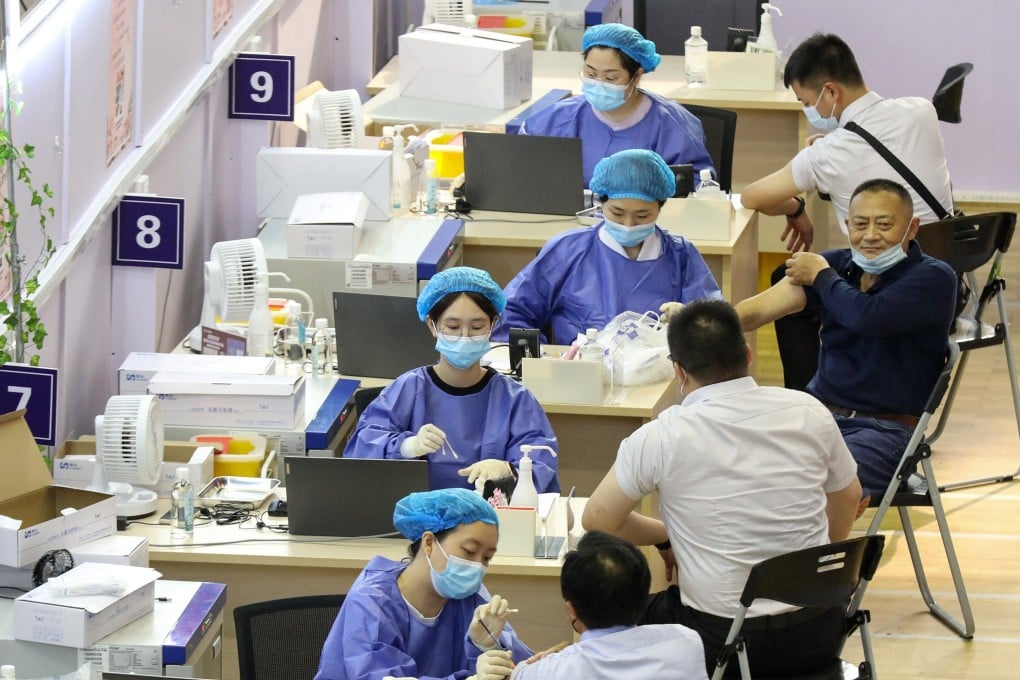Advertisement
Coronavirus: in China, some places are barring the unvaccinated from entry
- Dozens of counties and cities have announced new rules requiring registration and proof of vaccination to go into public venues
- People who cannot be immunised for medical reasons are exempt, as are those waiting for a second jab or anyone under 18
Reading Time:3 minutes
Why you can trust SCMP
7

Dozens of counties and cities across China have begun restricting access to public venues for adults who have not been vaccinated against Covid-19.
The new rules mean registration and proof of vaccination will be required to enter places like supermarkets, shopping centres, hospitals, theatres and nursing homes.
Local authorities in Jiangxi, Shaanxi, Zhejiang, Shandong and Fujian provinces are among those that have announced restrictions this month, according to state media reports.
Advertisement
People who cannot be vaccinated for medical reasons are exempt but must present proof from a medical institution, while the restrictions also do not apply to those who have had a first dose but are still waiting for a second, or to anyone under 18.

01:06
China’s Covid-19 vaccination drive hits 1 billion mark
China’s Covid-19 vaccination drive hits 1 billion mark
China achieved a target of vaccinating 40 per cent of the population – or 630 million people – last month, and is on track to meet its goal of inoculating 70 per cent by the end of the year. While officials and health experts have repeatedly urged people to get vaccinated, they have also maintained that it remains voluntary.
Advertisement
Advertisement
Select Voice
Select Speed
1.00x